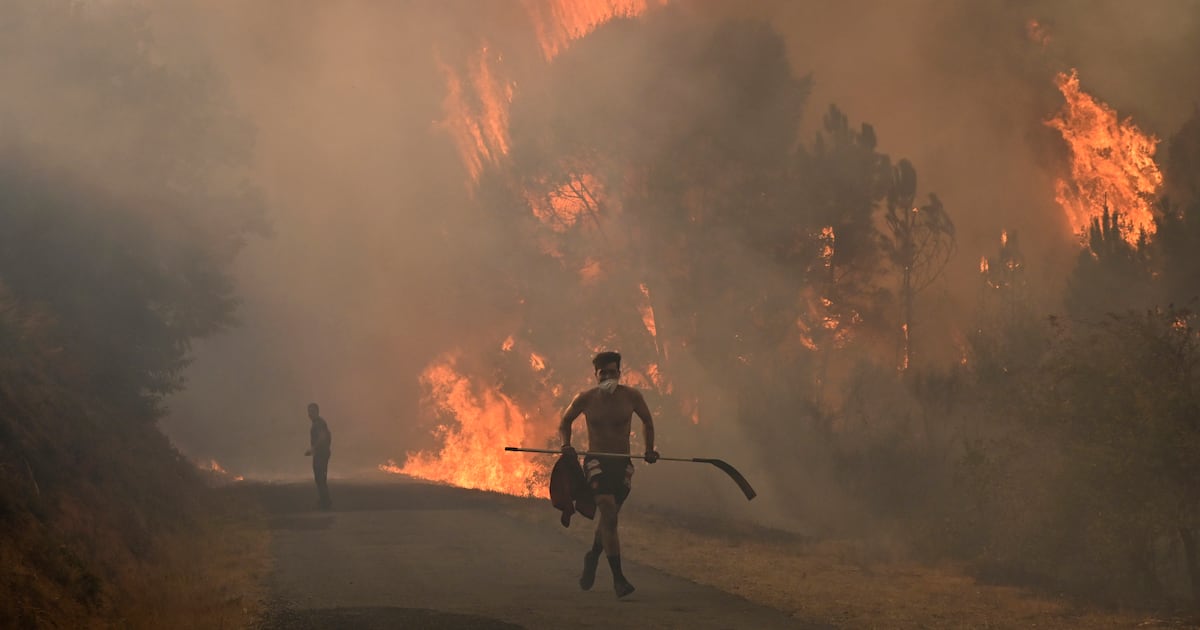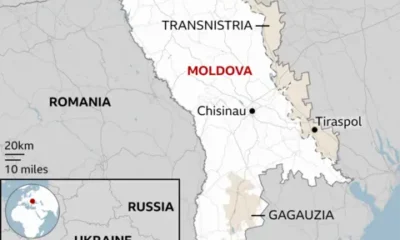Breaking News
The tariffs the EU inflicts on itself: Extreme heat, floods, pollution and ill-health

Read more on post .
The most obvious protections in a time of global instability may be skilled diplomacy, sturdy defence mechanisms or a robust economy, but a new report makes a strong case for prioritising a healthy environment.
Multiple crises characterise today’s global, geopolitical landscape, it said.
“In response, Europe is focused on security and defence, as well as boosting competitiveness, to deliver sustainable prosperity and maintain quality of life for European citizens.”
The report does not dismiss this approach, but it notes that “without environmental resilience, we cannot have long-lasting security”.
The warning comes from the European Environment Agency in its latest five-yearly review of the State of the European Environment.
The agency appeals for “a broad understanding of security” that “captures not only defence, but also the resilience of vital societal functions that depend on our natural environment”.
It argues that a sound environment ensures a reliable supply of food, clean drinking water, and raw materials, as well as resilience to climate change and good public health.
Unless those key components are secure, society is vulnerable and, at a time of what it calls “geopolitical ruptures”, that vulnerability is heightened.
In this context, what the 2025 review shows is that, in environmental terms, Europe’s defences are down.
It says 62 per cent of the region’s rivers and lakes are below good ecological status and 60-70 per cent of its soils are degraded.
Protected habitats are in worse condition, with 81 per cent assessed as in a poor or bad state, as are 62 per cent of species.
Water stress already affects 30 per cent of the region and 34 per cent of the population. With global warming, those numbers are expected to rise.
Global warming is painfully evident in Europe, where temperatures are increasing at twice the worldwide average rate.
Last year, floods in Slovenia resulted in a 16 per cent loss in gross domestic product, while floods in Valencia, Spain, killed more than 250 people.
At the other extreme, severe drought is reducing agricultural yields.
It cut the region’s maize crop by 60 per cent in 2022, drove up the prices of Spanish tomatoes, broccoli and oranges by 25-35 per cent in 2023, sent olive oil prices soaring last year and has cut cereal yields by an estimated 7 per cent this year.
Extreme heat is becoming more frequent, with deadly consequences.
“Over 70,000 people in Europe are estimated to have died from heat in 2022, followed by 48,000 in 2023,” notes the report.
A healthy natural environment would mitigate some of those impacts by absorbing and locking away more greenhouse gases, providing shade, regulating temperature, and soaking up floodwaters.
The cost of neglecting the environment amounts to hundreds of billions of euros annually in terms of extreme weather damage, pollution, productivity losses, and ill-health.
Those are the “tariffs” we inflict upon ourselves while also trying to cope with external levies, notes the agency.
The agency draws on data from 600 national bodies and institutions across the EU and its neighbouring countries, all of which are subject to individual scrutiny.
The Republic’s record mirrors many of the collective findings, with more natural water bodies, habitats, and wildlife in poor condition than in healthy condition.
The State, like the rest of the EU, has committed to making improvements, with ambitious 2030 targets for water and air quality, nature restoration and marine protection.
The next agency State of the European Environment report is due that year, but already, five years out, the current version delivers a grim spoiler.
It says: “Past policy targets have not been met and it is unlikely that 2030 targets will be achieved.”











